VW Golf vs Skoda Fabia – Differences & prices compared
Compare performance, boot space, consumption and price in one view.
Find out now: which car is the better choice for you – VW Golf or Skoda Fabia?
The VW Golf (Hatchback) comes with a Petrol MHEV, Petrol, Diesel or Plugin Hybrid engine and Automatic or Manuel transmission. In comparison, the Skoda Fabia (Hatchback) features a Petrol engine with Manuel or Automatic transmission.
When it comes to boot capacity, the VW Golf offers 381 L, while the Skoda Fabia provides 380 L – depending on how much space you need. If you’re looking for more power, decide whether the 333 HP of the VW Golf or the 150 HP of the Skoda Fabia suits your needs better.
In terms of consumption, the values are 0.30 L per 100 km for the VW Golf, and 4.90 L for the Skoda Fabia.
Price-wise, the VW Golf starts at 24300 £, while the Skoda Fabia is available from 16900 £. Compare all the details and find out which model fits your lifestyle best!
In the compact car showdown between the Skoda Fabia and the VW Golf, both models offer impressive build quality typical of the Volkswagen Group. The Skoda Fabia shines with its exceptional value for money, providing ample space and practicality for urban driving. Meanwhile, the VW Golf maintains its iconic status with superior driving dynamics, a refined interior, and a range of advanced tech features, appealing to those who crave a more premium experience.
VW Golf
Der VW Golf überzeugt seit Jahrzehnten durch seine Vielseitigkeit und seine ausgewogene Mischung aus Komfort und Dynamik. Mit seinem zeitlosen Design und der hochwertigen Verarbeitung ist er ein treuer Begleiter im Alltag. Besonders beliebt ist der Golf wegen seiner innovativen Technologie und der großen Auswahl an Varianten, die für jeden Bedarf das passende Modell bietet.
details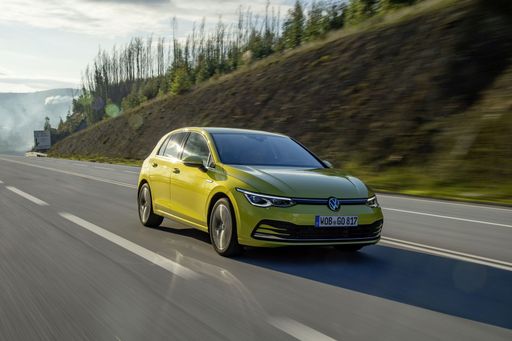 @ Volkswagen
@ Volkswagen
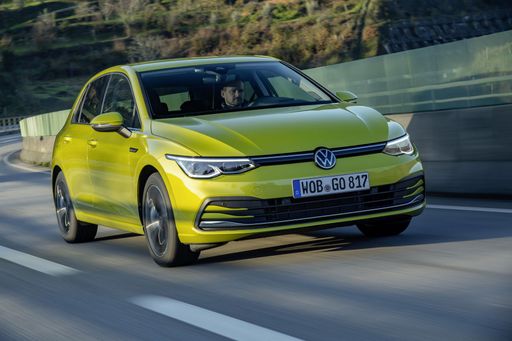 @ Volkswagen
@ Volkswagen
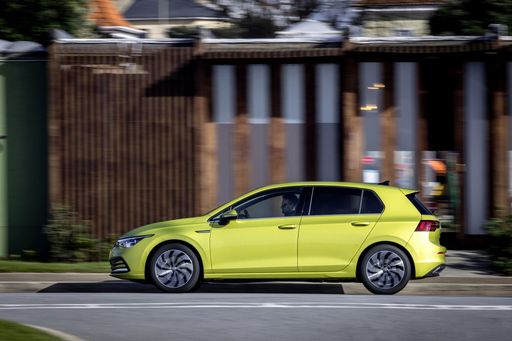 @ Volkswagen
@ Volkswagen
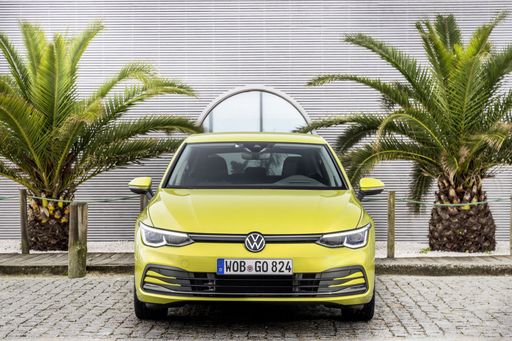 @ Volkswagen
@ Volkswagen
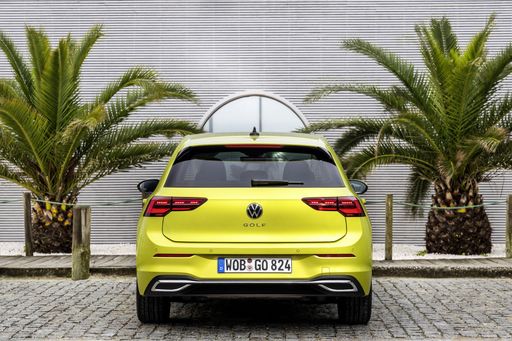 @ Volkswagen
@ Volkswagen
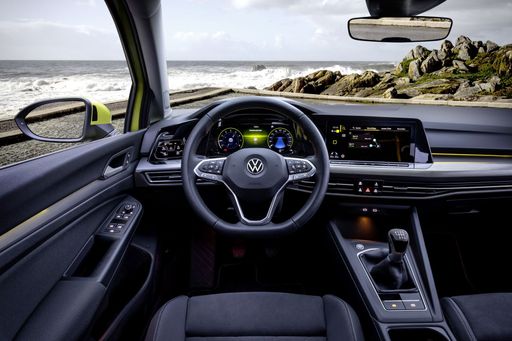 @ Volkswagen
@ Volkswagen
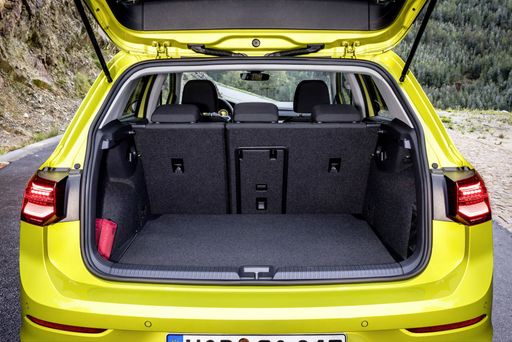 @ Volkswagen
@ Volkswagen
Skoda Fabia
The Skoda Fabia presents itself as a practical and stylish hatchback, perfect for urban driving and beyond. Its interior is designed with comfort and functionality in mind, offering ample space and intuitive controls. With a focus on efficiency, the Fabia provides a smooth driving experience, complemented by its crisp and modern exterior design.
details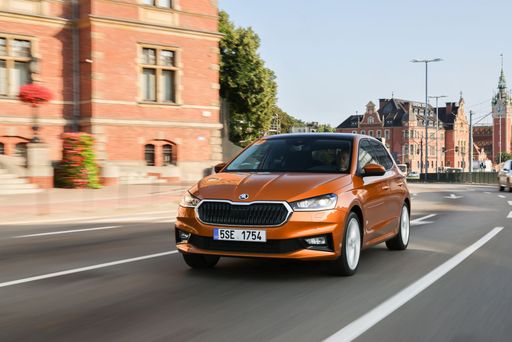 @ Skoda Presse Deutschland
@ Skoda Presse Deutschland
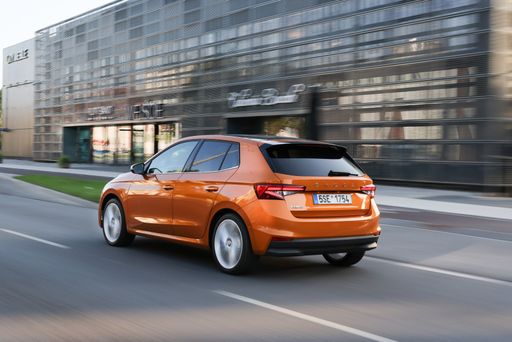 @ Skoda Presse Deutschland
@ Skoda Presse Deutschland
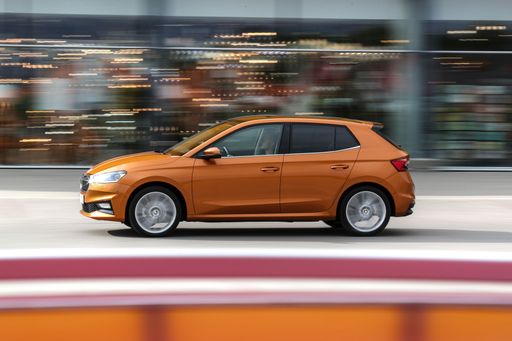 @ Skoda Presse Deutschland
@ Skoda Presse Deutschland
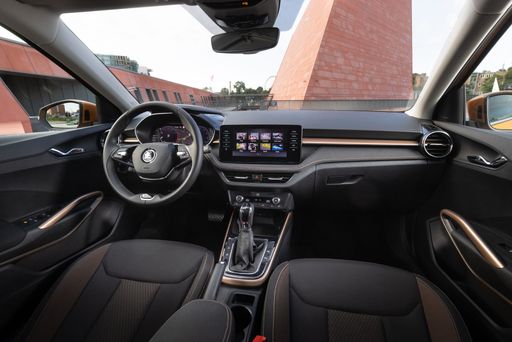 @ Skoda Presse Deutschland
@ Skoda Presse Deutschland
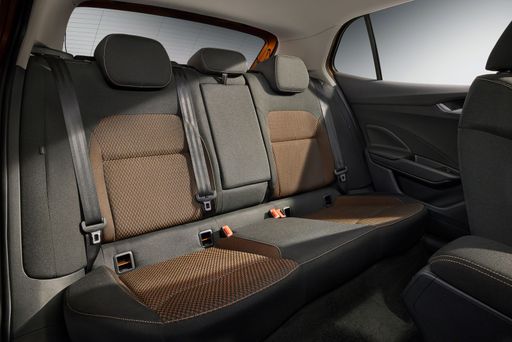 @ Skoda Presse Deutschland
@ Skoda Presse Deutschland
An In-Depth Comparison: Skoda Fabia vs VW Golf
In the world of compact hatchbacks, few rivalries are as compelling as the Skoda Fabia's face-off with the VW Golf. Both vehicles have established themselves as significant players in the automotive sector, offering distinctive features and innovations. Today, we delve deep into their specifications, technical prowess, and what each offers the discerning driver.
Design and Dimensions
Starting with the Skoda Fabia, this hatchback has a length of 4108 mm, a width of 1780 mm, and stands tall at 1479 mm, making it a compact yet spacious choice. The VW Golf, on the other hand, is slightly larger with a length ranging from 4282 mm to 4292 mm, a width of 1789 mm, and a height varying between 1456 mm and 1483 mm. This gives the Golf a more robust presence on the road while retaining its manageable city-driving credentials.
Engine and Performance
The Fabia is equipped with a choice between two engine capacities: 999 cm3 and 1498 cm3, paired with either a manual or a dual-clutch automatic transmission. Its engines deliver power ranging from 80 HP to 150 HP, delivering torque between 93 Nm to 250 Nm. It boasts a variety of acceleration speeds, from a leisurely 15.7 seconds to a brisk 8 seconds for 0-100 km/h.
In the VW Golf's corner, there's a broader spectrum of powertrains available, including petrol, MHEV, diesel, and even plugin hybrid options. Golf’s engines offer anywhere between 116 HP to an impressive 333 HP, with acceleration times from 10.2 seconds to a lightning-fast 4.6 seconds. It also offers the flexibility of front-wheel and all-wheel drive, catering to different driving needs.
Fuel Efficiency and Environmental Impact
Both models are committed to impressive fuel efficiency. The Skoda Fabia offers a consumption range from 5.0 to 5.5 L/100km, which aligns with its CO2 efficiency class ratings of C and D. The Golf, with its diverse engine options, presents consumption figures from an ultra-efficient 0.3 L/100km on plugin hybrid models to 8.5 L/100km on its high-performance variants. It also features electric ranges up to 143 km, particularly appealing under its plugin hybrid category.
Capacity and Cargo
When it comes to space, both hatchbacks are competitive. The Fabia offers a trunk capacity of 380 L, ample for regular day-to-day use. Conversely, the VW Golf’s trunk capacity varies from 273 L to 381 L, depending on the model and powertrain, slightly edging out the Fabia in practical storage space depending on the configuration.
Innovative Features
Both cars come equipped with modern features aimed at enhancing the driving experience. The Fabia packs a keen balance of comfort and practicality, a model of efficiency that aligns with Skoda's reputation for offering great value. The VW Golf, however, steps up the game with a suite of technologies, particularly in its higher-end variants that offer more performance-focused setups and advanced driver-assistance systems.
Conclusion
Choosing between the Skoda Fabia and the VW Golf depends largely on your priorities. The Fabia is perfect for those seeking a straightforward, cost-effective, and agile hatchback. Meanwhile, the Golf offers a wider range of options, from budget-friendly models to high-performance variants, making it a versatile choice that can be tailored to more specific needs. Whether you prefer Skoda's practicality or VW’s technology and variety, both cars deliver reliable and enjoyable driving experiences.

|

|
|
|
|
Costs and Consumption |
|
|---|---|
|
Price
24300 - 51100 £
|
Price
16900 - 26000 £
|
|
Consumption L/100km
0.3 - 8.2 L
|
Consumption L/100km
4.9 - 5.3 L
|
|
Consumption kWh/100km
-
|
Consumption kWh/100km
-
|
|
Electric Range
131 - 143 km
|
Electric Range
-
|
|
Battery Capacity
19.70 kWh
|
Battery Capacity
-
|
|
co2
6 - 186 g/km
|
co2
112 - 119 g/km
|
|
Fuel tank capacity
40 - 55 L
|
Fuel tank capacity
40 L
|
Dimensions and Body |
|
|---|---|
|
Body Type
Hatchback
|
Body Type
Hatchback
|
|
Seats
5
|
Seats
5
|
|
Doors
5
|
Doors
5
|
|
Curb weight
1307 - 1668 kg
|
Curb weight
1133 - 1238 kg
|
|
Trunk capacity
273 - 381 L
|
Trunk capacity
380 L
|
|
Length
4282 - 4296 mm
|
Length
4108 mm
|
|
Width
1789 mm
|
Width
1780 mm
|
|
Height
1454 - 1483 mm
|
Height
1459 mm
|
|
Payload
431 - 508 kg
|
Payload
442 - 455 kg
|
Engine and Performance |
|
|---|---|
|
Engine Type
Petrol MHEV, Petrol, Diesel, Plugin Hybrid
|
Engine Type
Petrol
|
|
Transmission
Automatic, Manuel
|
Transmission
Manuel, Automatic
|
|
Transmission Detail
Dual-Clutch Automatic, Manual Gearbox
|
Transmission Detail
Manual Gearbox, Dual-Clutch Automatic
|
|
Drive Type
Front-Wheel Drive, All-Wheel Drive
|
Drive Type
Front-Wheel Drive
|
|
Power HP
116 - 333 HP
|
Power HP
80 - 150 HP
|
|
Acceleration 0-100km/h
4.6 - 10.2 s
|
Acceleration 0-100km/h
8 - 15.7 s
|
|
Max Speed
202 - 270 km/h
|
Max Speed
175 - 222 km/h
|
|
Torque
220 - 420 Nm
|
Torque
93 - 250 Nm
|
|
Number of Cylinders
4
|
Number of Cylinders
3 - 4
|
|
Power kW
85 - 245 kW
|
Power kW
59 - 110 kW
|
|
Engine capacity
1498 - 1984 cm3
|
Engine capacity
999 - 1498 cm3
|
General |
|
|---|---|
|
Model Year
2024 - 2025
|
Model Year
2024
|
|
CO2 Efficiency Class
D, C, B, F, G
|
CO2 Efficiency Class
D, C
|
|
Brand
VW
|
Brand
Skoda
|
VW Golf
VW Golf: Ein Evergreen mit innovativer Technik
Seit Jahrzehnten gilt der Volkswagen Golf als der Inbegriff des zuverlässigen Kompaktwagens. Doch der neueste VW Golf zeigt sich nicht nur als bewährter Alltagsheld, sondern auch als Fortführer technologischer Innovationen. Ob Benzin, Diesel oder Hybrid – der Golf bietet für jede Präferenz die passende Antriebsform und bleibt dabei stets am Puls der Zeit.
Antriebsvarianten: Vielfalt für jeden Fahrertyp
Der VW Golf ist in einer beeindruckenden Bandbreite von Antriebsvarianten erhältlich, die von klassischen Benzinmotoren über effiziente Diesel-Aggregate bis hin zu modernen Hybrid-Antrieben reichen. Insbesondere die Mild-Hybrid und Plug-In-Hybrid Modelle stellen einen herausragenden Fortschritt in Sachen Kraftstoffeffizienz und CO2-Reduktion dar. Mit einem Verbrauch von nur 0,3 L/100 km bei den Plug-In-Hybrid Varianten und einer elektrischen Reichweite von bis zu 137 km setzt der Golf Maßstäbe in seiner Klasse.
Leistung und Effizienz
Das Leistungsspektrum des Golf erstreckt sich von effizienten 116 PS bis hin zu kraftvollen 333 PS im Golf R, der mit Allradantrieb und sportlicher Dynamik beeindruckt. Vielfältige Auswahlmöglichkeiten bei Getriebearten, von manuell bis zum modernen Doppelkupplungsgetriebe (DSG), bieten zusätzliche Flexibilität für unterschiedliche Fahrstile und Nutzungsszenarien.
Technologie und Innovation
Die neuesten Golf-Modelle sind mit fortschrittlicher Technologie ausgestattet, die Komfort und Sicherheit auf ein neues Niveau hebt. Das Interieur glänzt mit einem modernen Infotainmentsystem, umfassender Konnektivität und innovativen Fahrerassistenzsystemen. Das Head-up-Display, adaptive Fahrwerksregelung und die intelligente Verkehrszeichenerkennung sind nur einige der Features, die den Golf zu einem der technologisch führenden Fahrzeuge in seinem Segment machen.
Design und Funktionalität
Der VW Golf kombiniert bewährtes Design mit funktionalen Verbesserungen. Das sportliche, aber dennoch elegante Schrägheck bietet großzügigen Platz, wobei der Kofferraum zwischen 273 und 381 Litern zu bieten hat. Die ästhetische Linienführung bei zugleich optimaler Raumausnutzung verleihen dem VW Golf seine typisch zeitlose Eleganz.
Umweltbewusstsein und Nachhaltigkeit
In einer Zeit, in der der bewusste Umgang mit Ressourcen immer wichtiger wird, überzeugt der Golf mit einer hohen Effizienz und geringen Emissionen. Die verfügbaren CO2-Effizienzklassen von B bis G zeigen, dass der Golf auch in puncto Umweltverträglichkeit eine gute Wahl darstellt. Dank der Auswahl an ressourcenschonenden Antrieben trägt der Golf zur Reduzierung des ökologischen Fußabdrucks bei.
Fazit: Der VW Golf bleibt ein Bestseller
Mit stetiger Weiterentwicklung in Technik und Design bleibt der VW Golf ein Dauerbrenner auf dem Automobilmarkt. Seine Vielseitigkeit in Antriebsarten, gepaart mit modernem Komfort und zukunftsweisender Technologie, macht ihn zu einem Fahrzeug, das nicht nur treue Fans begeistert, sondern auch neue Kunden anspricht. Der Golf bleibt ein Symbol für Zuverlässigkeit und Innovation in einem sich stetig wandelnden Markt.
Skoda Fabia
The Skoda Fabia: Precision Meets Practicality
The Skoda Fabia has long been a favourite in the compact car segment, and the 2024 version continues to uphold its reputation for delivering a perfect blend of efficiency, performance, and affordability. With a fresh design and advanced technological innovations, the Fabia is set to impress both new drivers and loyal enthusiasts alike.
Under the Bonnet: Engine Specifications
At the heart of the Skoda Fabia lies a range of efficient petrol engines tailored to meet diverse driving needs. The engine line-up includes three-cylinder and four-cylinder options, offering power outputs between 80 PS to 150 PS, corresponding to 59 kW to 110 kW. These engines strike an ideal balance between spirited performance and fuel economy, boasting consumption rates between 5 to 5.5 litres per 100 km, depending on the variant.
Transmission Options: Manual and Automatic
Drivers can choose from manual or automatic transmissions based on their preference for driving dynamics. The manual gearbox provides a traditional, engaging driving experience, while the advanced automatic dual-clutch transmission (DSG) offers seamless gear changes for a more relaxed commute.
Design and Dimensions: Compact Yet Spacious
The Fabia's exterior design remains quintessentially Skoda—sharp, elegant, and functional. The car measures 4108 mm in length, 1780 mm in width, and stands 1479 mm tall. Despite its compact footprint, the interior is surprisingly spacious, comfortably seating five and providing a commodious boot space of 380 litres.
Performance Metrics: Speed and Agility
Acceleration varies between 8 to 15.1 seconds for a 0-100 km/h sprint, with a maximum speed of 179 to 225 km/h, making it a versatile choice for urban and highway driving. Furthermore, the front-wheel-drive system ensures excellent traction and handling in various road conditions.
Fuel Efficiency and Environmental Impact
Skoda continues its commitment to sustainability with the Fabia, achieving CO2 emissions between 113 to 124 g/km. These figures not only highlight the vehicle's eco-friendly credentials but also result in lower running costs for the consumer, making it an astute financial choice.
Trim Levels and Customisation
The Fabia is available in six distinct trim levels: Drive, Essence, Selection, Drive DSG, Monte Carlo, and Monte Carlo DSG. Each variant offers its own set of features and customisation options, allowing buyers to tailor the vehicle to their specific taste and lifestyle needs.
Conclusion: A Compact Car with Much to Offer
In conclusion, the Skoda Fabia stands out in the compact car segment with its remarkable balance of performance, practicality, and affordability. With prices ranging from €19,320 to €29,840, it offers great value for money, appealing to a wide range of car buyers seeking reliability and innovation in their daily drive.
Which drive types are available for the VW Golf?
Available as Front-Wheel Drive or All-Wheel Drive.
The prices and data displayed are estimates based on German list prices and may vary by country. This information is not legally binding.
